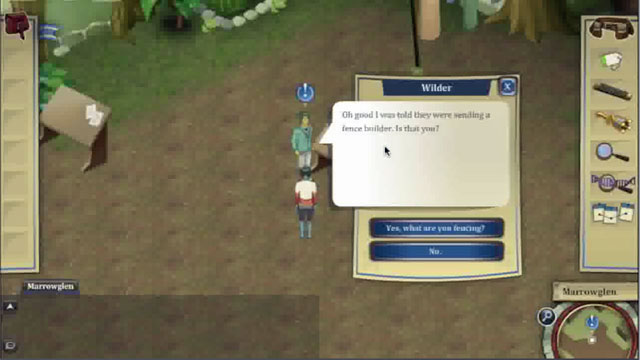MIT Education Arcade
As the buzz around games and learning continues to grow, one particular subset -- Massive Open Online (MMO) games -- is catching the attention of educators as a particularly interesting way to encourage students to collaborate, problem solve, create and think for themselves within a game.
One of the most popular MMOs is World of Warcraft, in which many players log in to the online game at the same time and play while interacting with people all over the world. But, although teachers have found ways to use commercial games like World of Warcraft for educational purposes, it wasn't originally designed with teachers in mind. Now, a group of researchers in MIT’s Education Arcade are trying to harness the power of MMO games to teach high school students to think like scientists and mathematicians. Their game, The Radix Endeavor, is designed to be an educational game, and capitalizes on the interactions students can have as a way to build their knowledge and skills.
Radix, as it’s known, is aligned to the Next Generation Science Standards for biology, focusing on topics like genetics, evolution, ecology and human body systems. In math, the game is aligned to the Common Core and has particular focuses on algebra, probability and statistics, as well as geometry. The researchers worked with Filament Games and are funded by the Gates Foundation for the three-year project.
[RELATED READING: Teachers Transform Commercial Video Game for Class Use]
“These kinds of environments have the potential to capture learning that’s difficult to capture in face-to-face settings,” said Jody Clark-Midura, a research scientist at the MIT Education Arcade in a recent edWeb webinar. “These games can be used as assessments or tools for teachers to monitor progress over time.” The game captures every detail of how a student plays; things like how long it takes to complete a challenge, what order the student chooses to do things and what tools she uses. All of these data points can provide valuable insight to a teacher assessing whether a student understands a concept.
The key to making a game engaging to students is a strong narrative. “What’s important is to take that engaging narrative and that incentive system and put some stakes into the world to keep it feeling like an engaging environment and a place that students really want to be,” said Susannah Gordon-Messer, education content manager for MIT’s Education Arcade. In Radix, the player’s task is to help citizens of a fictional earth-like world gain knowledge about math and science, a privilege denied by the land’s rulers.
The game creators say there are benefits to using a game-based environment to teach certain math or science concepts, like being able to speed up time to see the outcome of a decision that would take months in a real-world experiment. For example, students might be asked where to plant a kelp bed to best protect an ecosystem. Within the game, time can be fast-forwarded by 90 days so students can instantly see if they placed the kelp correctly.


